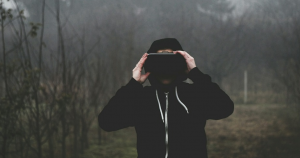How Gen Z Is Redefining Internet Culture and Digital Entertainment
Gen Z, the generation born between the late 1990s and early 2010s, has grown up in a world that is deeply intertwined with the internet. For them, digital connectivity is second nature, and as they have come of age, they are fundamentally reshaping internet culture and digital entertainment. With their unique blend of creativity, activism, and technological savvy, Gen Z is leading the charge in how we consume, create, and engage with digital content. From social media to gaming, their influence is being felt across every corner of the internet, bringing with it new trends, values, and ways of interacting that are redefining the digital landscape.
One of the most significant ways Gen Z is transforming internet culture is through their approach to social media. Unlike previous generations that used social media primarily for connection and communication, Gen Z is using these platforms as a form of self-expression and activism. Platforms like TikTok, Instagram, and YouTube have become not only entertainment hubs but also places where young people create and share highly curated content that reflects their identities, values, and worldviews. TikTok, in particular, has been a game-changer, with its algorithm-driven content feed allowing users to discover new creators and trends in real-time. Gen Z’s embrace of TikTok has given rise to viral challenges, niche subcultures, and new forms of humor that often rely on quick, visually engaging content.
This generation is also known for its willingness to engage with serious topics on social media. Gen Z is not afraid to use platforms to raise awareness about social, political, and environmental issues. They’ve turned Instagram and Twitter into spaces for organizing, fundraising, and educating their peers on topics ranging from climate change to racial justice. For them, digital activism is a natural extension of their online presence, blending seamlessly with their entertainment consumption. This shift towards social consciousness in digital spaces has influenced the kinds of content that are popular among Gen Z, with creators who address important issues often finding large, engaged audiences. Gen Z’s influence is pushing the boundaries of what is considered “entertainment” by blending it with activism and social commentary.
Another way Gen Z is redefining digital entertainment is through their preference for more interactive and participatory forms of media. While older generations may have grown up with television and movies as their primary sources of entertainment, Gen Z is more likely to spend time on platforms that allow for direct engagement with content. Streaming services like Twitch and YouTube have become hugely popular among Gen Z, not just as places to watch videos or gameplay but as spaces where they can interact with creators in real-time. This generation values the sense of community that comes from being able to chat with their favorite influencers or gamers during a live stream. The rise of esports and gaming culture has also been driven in large part by Gen Z, who see gaming not just as a pastime but as a legitimate form of entertainment that can be as compelling as traditional sports or television.
Gaming, in particular, holds a central place in Gen Z’s digital entertainment landscape. Games like Fortnite, Minecraft, and Roblox have become social spaces as much as they are games, offering opportunities for creativity, collaboration, and social interaction. In these virtual worlds, Gen Z is redefining what it means to be a creator, as users can build their own environments, design characters, and even monetize their creations. The lines between players and creators are increasingly blurred, with platforms like Roblox allowing users to build their own games and experiences that can be shared with millions of others. This participatory approach to entertainment aligns with Gen Z’s desire for experiences that are more immersive and customizable, offering them the chance to not just consume content but actively shape it.
In addition to gaming, Gen Z’s approach to entertainment is heavily influenced by their preference for authenticity and relatability. They are less interested in highly polished, traditional forms of media and more drawn to creators who are perceived as genuine and approachable. This is why platforms like YouTube and TikTok, where everyday people can achieve fame through their creativity and personality, resonate so strongly with this generation. Gen Z values content that feels real, whether it’s a TikTok dance challenge, a vlog, or a livestream. This demand for authenticity has forced brands and media companies to rethink how they connect with younger audiences, leading to the rise of influencer marketing and content that feels more personal and organic.
Gen Z is also driving changes in how digital content is monetized. The traditional advertising models that have sustained media for decades are increasingly being challenged by new forms of revenue generation, many of which have been embraced by this generation. For example, platforms like Patreon, OnlyFans, and Substack allow creators to directly monetize their content through subscriptions, bypassing the need for advertisers altogether. Gen Z is more than willing to pay for content they find valuable or entertaining, and they often prefer supporting individual creators directly rather than consuming ad-supported content. This shift towards creator-driven monetization is reshaping the digital economy, giving rise to new opportunities for independent creators to thrive without relying on traditional media gatekeepers.
The evolution of internet culture and digital entertainment under the influence of Gen Z is not just a fleeting trend; it represents a fundamental shift in how media is created, consumed, and monetized. Their preferences for interactivity, authenticity, and social consciousness are driving the evolution of the digital landscape, and their impact will continue to be felt as they become the dominant force in the media ecosystem. As they blur the lines between entertainment and activism, creator and consumer, Gen Z is redefining what it means to engage with digital content, ushering in a new era of internet culture that is more participatory, diverse, and dynamic than ever before.














Post Comment